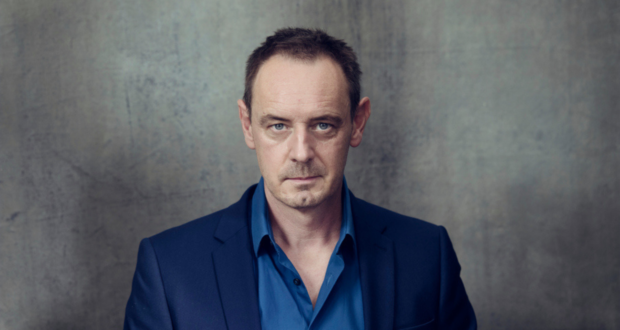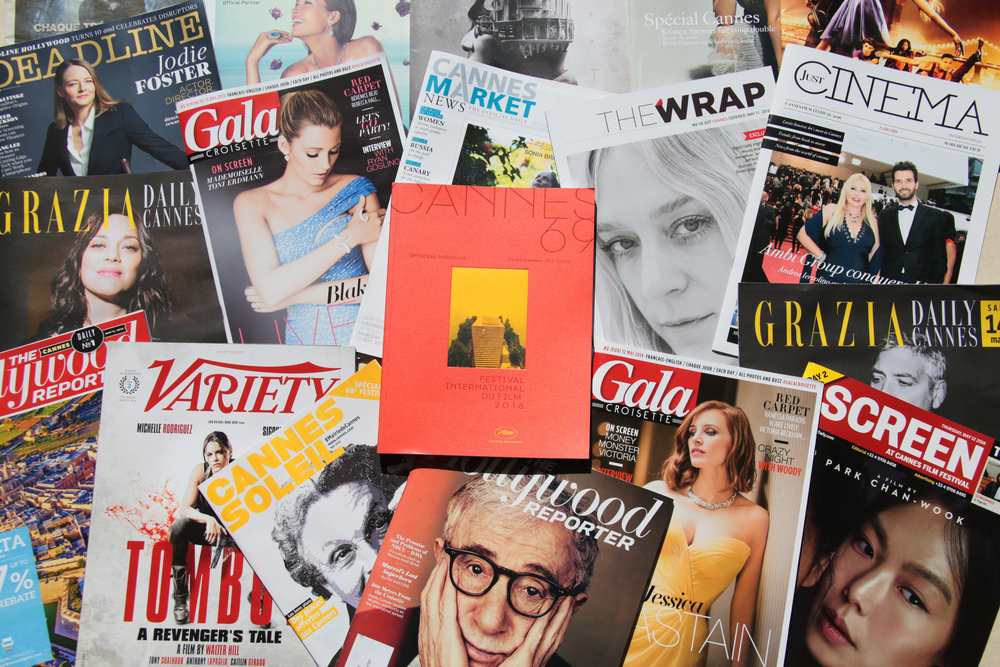Steven Elder is a highly prolific professional film and theatre actor, alongside A list actors such as Viggo Mortenson and Jessica Chastain; coupled with experience in screenwriting. Since 1992, Steven has been involved with theatre acting, and later UK television programmes (Doctors, Apple Tree Yard, Silent Witness, Robin Hood), and US television (Lost, NCIS). Early feature film work includes Vanity Fair, and Get Real. He has recently starred in major feature films such as The King, and The Echelon Conspiracy. He will appear in the highly anticipated upcoming series The Winter King, set for air In October 2023 on MGM+ and ITVX.
Along the way, with his experience on the stage (including starring in Romeo and Juliet at Shakespeare’s Globe and Frost/Nixon at Sheffield Crucible Theatre), Steven has come to understand the impact that the world of online critique and online reviews has had on his peers in the theatre and film/TV industries.
Steven Elder discusses how to better rationalise online critique as an actor and sheds light on the contemporary make-up of performing on the stage and screen.
Judgement, Self-Judgement, and Online Critique by Steven Elder
Steven Elder says “None of the following is professional mental health advice, of course, and I would always advocate seeking help from those who are qualified should, and whenever, you feel you need it.
“We wouldn’t be in this job if we didn’t love the work when it comes along, but some not so good stuff comes with the territory.
“My number one piece of advice to any actor would be to identify the things about the job that make you feel bad, and have rules in place to protect yourself as much as you can. Your “rules” may evolve over time, and there be a good reason to break them from time to time; but that would be your considered choice, a choice you own, and one that is your prerogative.
“I’m breaking one of my rules right now, in fact – quite a recent one – don’t give unsolicited advice. Then again, it’s my rule to break!
“I only feel qualified to talk about what areas of the job are mentally dangerous for me. The purpose of this article is to encourage you to undertake your own reflection, to do your own audit on what you might need, not to suggest anything I have come up with would work for you.
“For example, one area of my professional life (and therefore my life!) that potentially can make me feel bad is my relationship with “judgement” – both in terms of public judgement from others, and that internal self-judging voice I think we all have. Both of which can get amplified in a big way by social media.
Of course, people from all walks of life can be affected badly by these things; I do think though that the “public eye” nature of our job makes us particularly prone. Though we are certainly not the only profession “on display” (My Dad was a professional boxer, and used to put everything on the line out there in the ring – body, health, and soul – all in the full glare of public scrutiny).
“Actors seem to be an easy target. If only I had a quid for every time someone has met me, and instantly called me (puts on affected voice) an “acTOR”, over enunciating that final syllable, with all it’s passive aggressive implications about pretentiousness. That’s at least one thing my Dad didn’t have to put up with!
The Actor – Two Sides of The Coin
Steven Elder says: “During a recent court case that involved an actor, I read a report which said that the truth of the actor’s testimony under oath was called into question by the opposing legal team because of what the actor does for a living. Because of their job! An actor being seen as intrinsically unreliable because they are part of the story-telling tradition has clearly become a perfectly acceptable point to use against them in a court of law! I guess we remain “rogues and vagabonds” in some people’s eyes; albeit “rogues and vagabonds” who are an integral part of an industry which is contributing millions to the economy.
Now the internet has provided a huge world-wide-web sized platform for judgements about us to be published. Public judgement from others is no longer just about published reviews of performances. We step into this job, and we step into an arena of judgement like never before and that isn’t going to go away. It can be dangerously damaging.
“I know I’m lucky. I’m someone who – as far as I’m aware – has been free of being judged publicly on the way I look; but I know of colleagues who have been judged on their physicality and their identity, and in ways laced with prejudice.
“There are no guarantees that all this can be avoided, but let’s do what we can to find our healthy individual strategies in the light of all this. We can only do what we can, but let’s do something about looking after ourselves.”
Reviews and Social Media – Can Be Difficult on an Actor’s Mind and Performance
Steven Elder says: “So…. I avoid reviews as they are none of my business; even if someone catches me (and I mean catch!), and says they are good, I avoid reading them, and I have been known to change my route into a theatre in order to avoid reviews put up outside. I had to take a particularly roundabout route through central London to avoid the reviews posted outside the Apollo West End during the run of “All My Sons”, leading to a few moments of almost missing my train home! Hats off to you if you can see them, and not being affected by them! I’m thin skinned, and I forgive myself for it.
“I am on social media – at least for the time being! – as I use it to stay in touch with some people and occasionally will retweet something I like. But I’m aware, as we all are, that a lot of toxic judgement is flying around on there. I can’t guarantee avoidance of it, but I do what I can to mitigate my exposure to it – by regulating my use of social media to once in a blue moon, avoiding debate, and by having a private account. You’re welcome through the door, but you’re my guest and you have to be kind in there! I will never get a job based on my not very impressive popularity on social media anyway (!), it will just have to be about what I might bring to playing the role…. Old school!
That negative inner voice
“Judgement of me by me is my biggest challenge. That critical and often damaging inner voice, the imposter syndrome voice! Regulating social media helps as I can avoid that temptation to compare with other seemingly perfect lives and careers. If you can use it, and use it without it ever adversely affecting you, then brilliant. I need to have some kind of strategy.
“I try to avoid conversations where other actors’ performances are being adversely judged – particularly in the theatre bar after shows! – partly because you never know the circumstances of that performance, perhaps there’s been no opportunity to fully prepare, or maybe the process wasn’t as collaborative and open as it should have been; and because partly I don’t want to talk myself into a mindset that might lead to me judging myself, and my work.
“I know I work best when I don’t care too much about what effect I’m having, or might be having, on an audience. Not that I don’t respect the audience, but I need to feel free of a need to please. Maybe because I know that being a people pleaser is in my DNA, and I need to be careful about it. I avoid looking at the camera monitor when filming to access what I’ve just done when filming for this reason. I don’t want to be too conscious of what I’m doing and the effect it might or might not have. I don’t want to go there. Feel it might put me in a mindset of self-judgement. Even if I saw something I thought was good, it might put me in that mindset. It either feels right or it doesn’t; and it’s the directors final call on whether that take works anyway.
“Draw your own lines in the sand; try and be the first line of defence in looking after yourself, though do speak up and call for professional help if needed.
The UK performers “Spotlight Directory” offers a range of articles and advice online regarding self care and well-being that is well worth exploring.
More information here.
“We’re people too.”
About Steven Elder
Born Steven Lawrence, Steven grew up in Rotherham, South Yorkshire. He attended the Valley Comprehensive School in Worksop and Webber Douglas Academy of Dramatic Art in London. He began working in UK Television in the 1990’s starting in shows such as Coronation Street, The Vice, Upstairs Downstairs, and Suffer The Little Children. Steven Elder went on to star in television shows Monarch of Glen, Apple Tree Yard, and in Rillington Place, alongside other shows on the BBC and ITV. Steven Elder has also starred in major film productions, and on the stage for over 30 years at the Greenwich Studio Theatre, Orange Tree Theatre (Office nomination 2012), Shakespeare’s Globe, and London’s West End.
For more information on Steven Elder, please visit his personal website here.
 Everything Theatre Reviews, interviews and news for theatre lovers, London and beyond
Everything Theatre Reviews, interviews and news for theatre lovers, London and beyond





